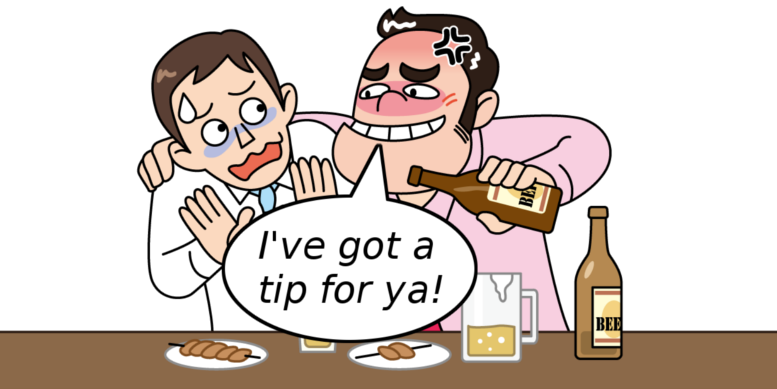A few days ago I watched a video by one of my favorite YouTubers the Super Carlin Brothers, titled “How to Fix Quidditch.” As a Harry Potter nerd I eagerly clicked it, watched it, and then subsequently disagreed with pretty much everything.
Yes, Quidditch is a completely illogical game. But that’s exactly what makes it fun to read.
To summarize for those who haven’t seen the video, Ben makes the claim that in Quidditch, catching the Snitch is way too good. If it were actually played in the real world, all games would come down to beating the opponent’s Seeker to a pulp, focusing all efforts on finding the Snitch, and completely ignoring the rest of the game.
To fix this Ben proposes a variety of changes to Quidditch: (1) a set time limit of four hours, (2) the Snitch is still worth 150 points but doesn’t end the game, and (3) regulated/uniform brooms for players.
Now you might be wondering what any of this has to do with writing. Here’s what I’m getting at: sure, his proposed changes would make Quidditch a better game if it were played in the real world. But if J.K Rowling had written Quidditch with his changes, it would make the Harry Potter books worse. Here’s why:
(1) Explaining excessive rules is boring to read
Quidditch is great as-is because it’s super easy to explain. It’s like soccer on flying broomsticks, with the explosive added bonus of the Snitch – oh and Bludgers too. Adding on extra rules like “uniform brooms” or “the four hour time limit” would not only give the reader extra baggage, but would completely erase little gems from the book like Oliver Wood saying the longest game ever was three months long.
And if regulation brooms were a thing, we’d never get Harry’s excitement over receiving the Nimbus 2000. It’s details like that – specific broom brands and world records – that help bring the magical world of Harry Potter to life. Getting rid of them just to have a game that would make more sense in our world completely defeats the purpose of having it in the first place.
(2) Harry playing Quidditch is more exciting (and believable) to read as-is
Not only would it be boring to read Quidditch being played if the games continued after Harry caught the Snitch (“And then Harry rode around in circles for an hour… then another hour… then another….”), but having the Snitch-catching ending the game makes the tension much higher.
When Harry is flying neck and neck with another Seeker, we know the match is on the line. If the teams could keep playing for another few hours after the Snitch was caught and make a comeback, it wouldn’t be nearly as intense.
Plus with the Snitch being the game-ending-point-present that it is, it makes Harry being on the Gryffindor team his first year much more believable. If Quidditch were more evenly balanced and Chasers were the ones responsible for winning games by scoring lots of goals, then the Seeker wouldn’t be as important.
And if the Seeker were less important, then Hogwarts would probably be less willing to bend the “no first years can play Quidditch rule” for Harry. They’d just tell the Chasers to suck it up and score more goals.
(3) Quidditch captures the magic and illogical flavor of the world
Hermione sums this up perfectly. Toward the end of The Sorceror’s Stone, when they’re going through the traps set up by the professors, she says this about Snape’s potion trap:
“This isn’t magic – it’s logic – a puzzle. A lot of the greatest wizards haven’t got an ounce of logic, they’d be stuck in here forever.”
Quidditch isn’t supposed to be logical because the world of Harry Potter isn’t logical. Quidditch is a microcosm of the philosophies than run the wizarding world – tradition, weirdness, and most importantly, magic.
We’re not supposed to understand the reasoning behind Quidditch any more than we’re supposed to understand how spells and potions work.
So what’s your point?
My point is this: don’t be afraid to be illogical in your own writing. When I was younger, I used to get frustrated when books and movies didn’t have a perfectly logical flow to them. I’d take the framework they created, bend it to make it logical, and then wonder why the author/creator hadn’t gone with my “better” way in the first place – just like Ben did with Quidditch.
But now I understand. It was precisely because those stories were illogical that I enjoyed them. If they’d been perfectly logical, I would have never given them another thought; they’d just be something taken for granted. But their illogic made me think about them, engage with them, and come up with my own explanations, which is every author’s dream to have their readers do.
Yes, illogic taken too far or in the wrong places can be a disaster. But when used correctly it’s the perfect tool to make your writing more concise, mysterious, and of course, interesting. Long live Quidditch and the game-breaking Snitch!
(Featured image via GAHAG, edited by me)

Comments are closed.